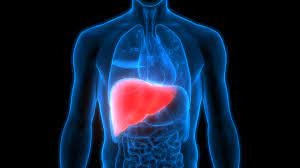Do not ignore these facial symptoms that appear when the liver is damaged
The illness known as “fatty liver disease,” which is on the rise, is brought on when extra fat builds up in the liver. One of our body’s most important organs, the liver is essential for both detoxification and digestion. Any liver-related problems may significantly affect general health and increase the risk of developing diseases including cardiovascular disease, cancer, and type 2 diabetes. Alcoholic fatty liver disease and non-alcoholic fatty liver disease (NAFLD) are the two main types of fatty liver disease. While excessive alcohol intake is the main cause of alcoholic fatty liver disease (AFLD), obesity, high blood sugar, and raised amounts of fat in the blood are often linked to NAFLD. Usually, an unhealthy lifestyle causes this illness.
Why It’s Vital to Recognize the Symptoms:
Early on, liver-related disorders may not show any obvious signs. When the liver’s capacity to operate normally is impaired, symptoms appear. To treat liver problems promptly and stop the illness from progressing, it is essential to recognize these signs.
Symptoms on the face
It’s interesting to note that certain fatty liver disease symptoms may also appear on the face. These facial signs comprise:
Jaundice (Yellowing of the Skin and Eyes): When the liver is damaged, it may be unable to properly process bilirubin, which causes a buildup of this yellow-pigmented material. Jaundice, a disorder marked by a yellowish coloring of the skin and eye whites, may arise from this.
Skin Redness: People who have liver problems may have red or flushed skin on their faces.
Small, dilated blood vessels called spider angiomas may form on the skin’s surface and look like red spider veins. They often accompany hepatic problems.
Rosacea is a skin ailment marked by face redness, which is often accompanied by obvious blood vessels and tiny, pus-filled pimples. Rosacea may be made worse or start because of liver issues.
What Causes These Face-On Symptoms?
According to medical professionals, these face symptoms appear when the liver is not operating at its best and the body struggles to adequately clear different waste products. Bilirubin, a yellow pigment formed during the breakdown of red blood cells, may not be digested and expelled as effectively as it should be when the liver’s function is impaired. This may cause the skin and eyes to become yellow, a sign of jaundice.
Additionally, the liver’s function in filtering and purifying the blood may be implicated in the development of redness, spider angiomas, and rosacea on the face. These skin problems might appear as a consequence of toxins building up in the circulation as a result of liver malfunction.
When to Seek Medical Advice:
It is critical to get urgent medical assistance if you have any of these face symptoms or believe you may have liver problems. Health professionals note that these symptoms often only become apparent after liver issues have greatly worsened. As a result, successful management of liver disorders depends on early identification and intervention.
Upkeep of a Healthy Liver:
Adopt a healthy lifestyle and make the best decisions for your overall wellbeing in order to maintain a healthy liver. Here are some essential actions to keep your liver healthy:
Diet: A healthy, well-balanced diet is crucial for the health of the liver. Avoid consuming meals that are too high in fat and sugar, and instead concentrate on eating a diet full of fresh fruits, vegetables, whole grains, lean proteins, and healthy fats. Reduce or stop drinking alcohol, particularly if you have a history of liver problems.
Exercise: Keeping a healthy weight and general wellbeing requires regular physical exercise. Exercise often to help ward against obesity, a major risk factor for non-alcoholic fatty liver disease (NAFLD).
Maintaining proper hydration helps the liver operate. Drink enough water each day to aid your body in eliminating pollutants.
Moderate Medication Use: Use caution while using prescription pharmaceuticals, dietary supplements, and over-the-counter medicines since excessive use may harm the liver. Always heed the advice of your doctor while taking a drug.
treat Chronic concerns: Work closely with your healthcare professional to treat any chronic health concerns you may have, such as diabetes or high blood pressure. If these disorders are not treated, they may lead to liver issues.
Checkups on a regular basis with your doctor will help you keep track of your liver’s health and catch any problems early.
If untreated, fatty liver disease is a common disorder that may have serious effects. For prompt intervention and the avoidance of more liver damage, it is crucial to recognize its symptoms, especially those that appear on the face. You may dramatically lower your chance of developing fatty liver disease and preserve the overall health of your liver by adopting a healthy lifestyle that includes a balanced diet, frequent exercise, and alcohol use in moderation. Keeping your liver healthy should be your top priority since it is essential to your overall wellbeing.







